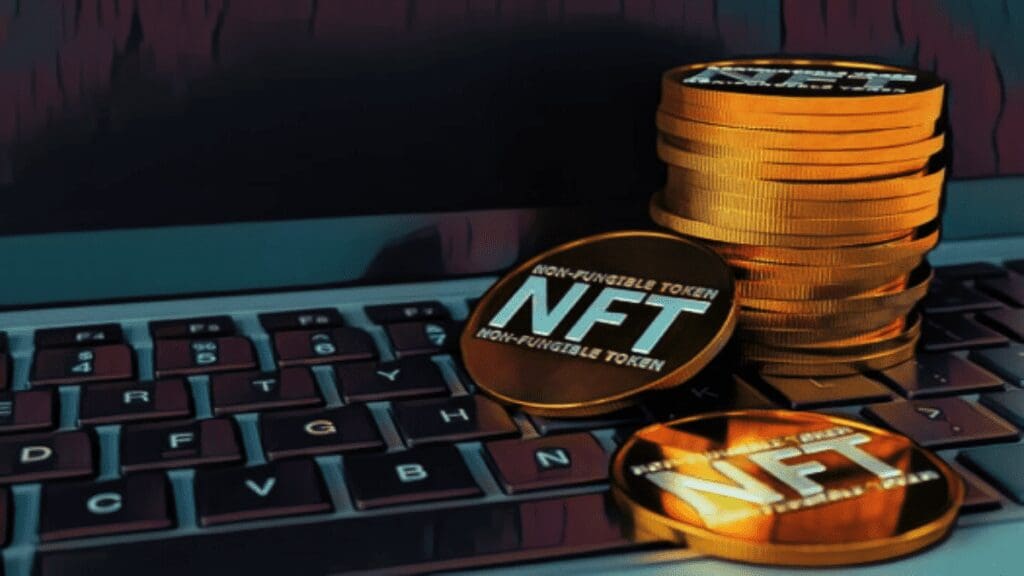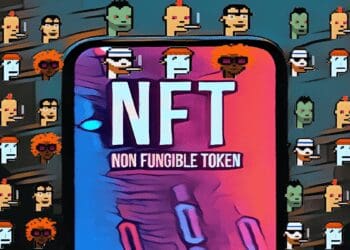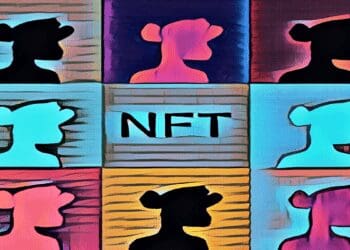- Bitcoin Ordinals’ Impact: Explore the disruptive influence of Bitcoin Ordinals in redefining NFTs on the blockchain.
- Regulatory Dynamics: Delve into the SEC’s actions and the ensuing debates surrounding NFTs as securities.
- Royalties Conundrum: Highlight the predicament faced by NFT creators due to the shift towards optional royalties and the industry’s response.
The realm of Non-Fungible Tokens (NFTs) underwent a whirlwind of transformation throughout 2023, marking a pivotal year with notable industry-shaping events and ongoing challenges. Amidst discussions questioning the viability of NFTs, the fervent trading and robust activity within the space stood as a testament to its resilience and vitality.
Recent statistics reveal a staggering collective sales volume exceeding $1.5 billion across the top 10 blockchains used for NFT transactions, firmly cementing the persistent demand for these digital assets.
Within the array of developments, three key narratives emerged prominently: the emergence of Bitcoin Ordinals, regulatory scrutiny by the U.S. Securities and Exchange Commission (SEC), and the contentious issue of creator royalties.
Bitcoin Ordinals: Redefining NFTs on the Blockchain
At the inception of 2023, software engineer Casey Rodarmor introduced Bitcoin Ordinals, a groundbreaking protocol that revolutionized the concept of NFTs within the Bitcoin network. Unlike conventional NFTs that rely on metadata pointing to external storage, Bitcoin Ordinals ingeniously stores assets’ contents directly on the blockchain, mitigating vulnerabilities associated with data loss or manipulation.
However, this innovation hasn’t been without its challenges, as concerns regarding blockchain congestion and the display of inappropriate content surfaced. Despite these drawbacks, the protocol gained momentum, propelling the Bitcoin network to surpass other platforms in transaction volumes.

Also Read: The End of Bitcoin’s Ordinals and BRC-20 Tokens
Regulatory Challenges: SEC’s Stance on NFT Securities
The year unfolded with landmark regulatory actions by the U.S. SEC, marking a pivotal moment in the NFT landscape. The SEC charged prominent entities, including Impact Theory and Stoner Cats 2, for conducting unregistered securities sales through their NFT offerings.
These cases highlighted the SEC’s assertion that certain NFTs were considered investment contracts, thereby constituting securities and necessitating registration. Dissenting voices within the SEC raised concerns, debating the nature of promises that form an investment contract, highlighting the growing discord regarding regulatory oversight in the NFT domain.
Creator Royalties Predicament: A Dilemma for NFT Artists
The intricate issue of creator royalties took centre stage, posing a significant challenge for NFT artists. The shift towards optional royalties within NFT marketplaces jeopardized creators’ earnings from secondary sales. Shockingly, leading collections experienced a considerable loss of approximately $20 million in royalties, signalling a concerning trend within the industry.
While some platforms doubled down on supporting creators by embedding royalties into their foundational code, others ventured into experimental models, leaving creators uncertain about their earnings.
Looking Ahead: NFT Space in 2024
As NFT marketplaces fiercely compete for dominance, anticipations for the forthcoming year teem with prospects of enhanced products and services within the space. With innovations like Bitcoin Ordinals shaping the narrative and regulatory scrutiny continuing, the future of NFTs in 2024 promises both challenges and opportunities. The resilience of the industry remains palpable, reaffirming its enduring presence in the digital landscape.













Discussion about this post